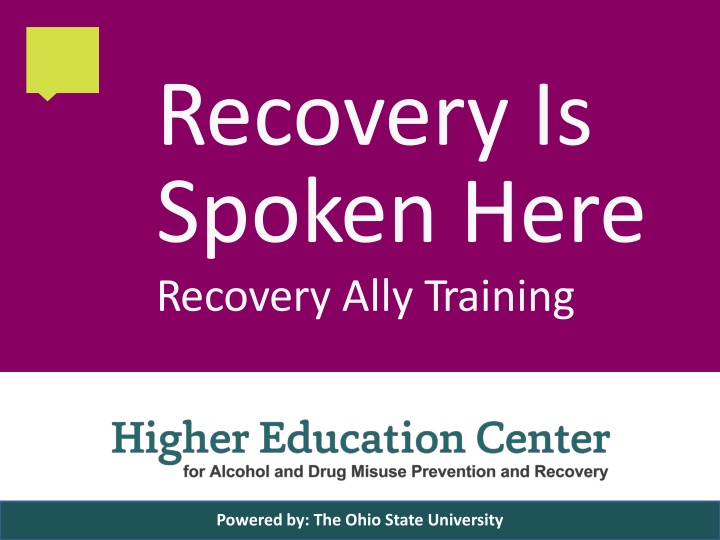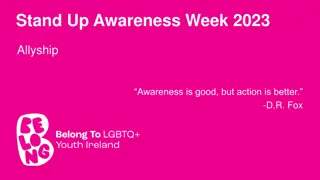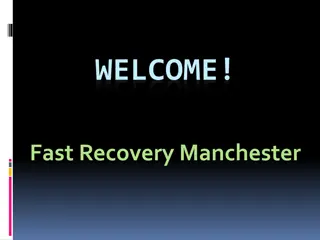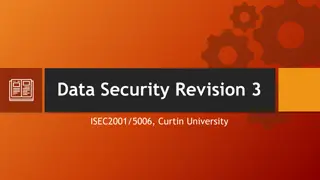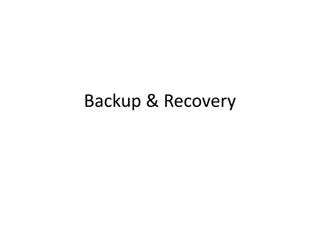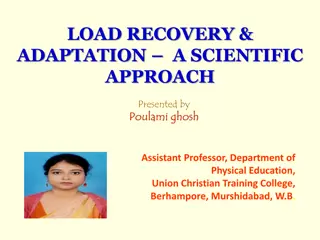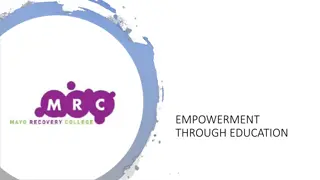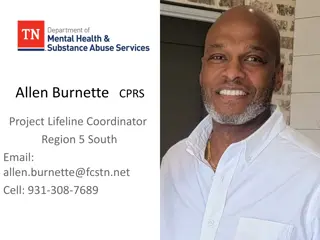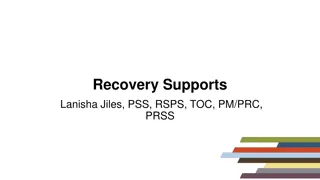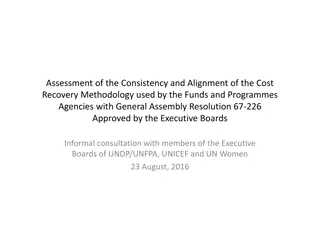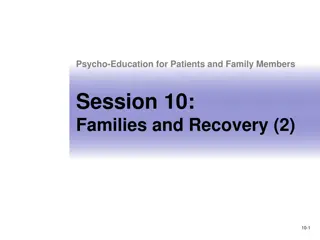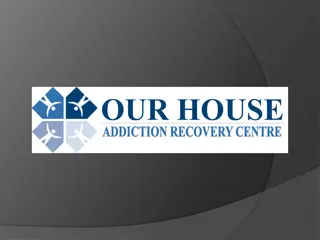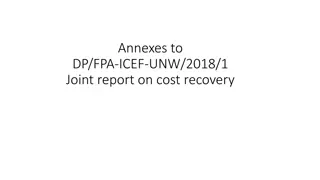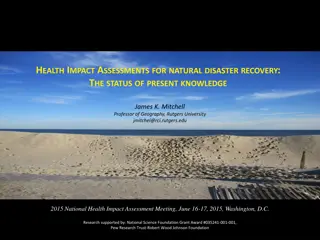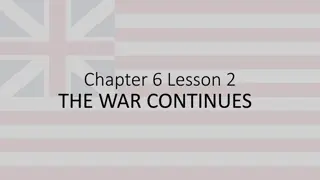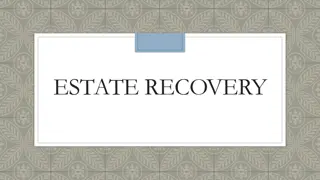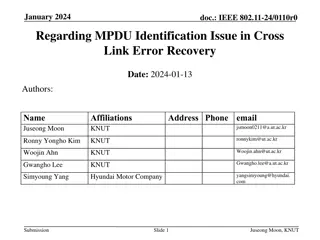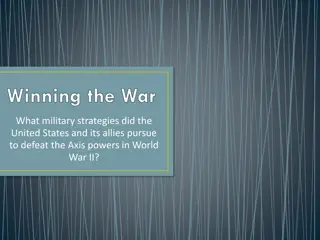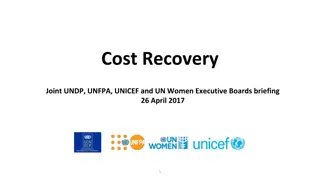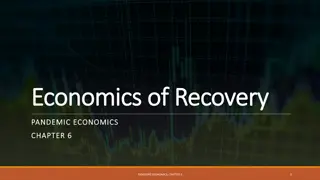Empowering Recovery Allies: A Comprehensive Training Overview
Empower yourself with the essential knowledge and skills to support students in recovery from substance use disorders through the Recovery Ally Training offered by The Ohio State University's Collegiate Recovery Community. Learn about addiction and recovery, campus resources, recovery language, and how to identify and assist students in need of support. Join the R.I.S.E initiative and help create a campus where recovery can flourish.
Download Presentation

Please find below an Image/Link to download the presentation.
The content on the website is provided AS IS for your information and personal use only. It may not be sold, licensed, or shared on other websites without obtaining consent from the author.If you encounter any issues during the download, it is possible that the publisher has removed the file from their server.
You are allowed to download the files provided on this website for personal or commercial use, subject to the condition that they are used lawfully. All files are the property of their respective owners.
The content on the website is provided AS IS for your information and personal use only. It may not be sold, licensed, or shared on other websites without obtaining consent from the author.
E N D
Presentation Transcript
Recovery Is Spoken Here Recovery Ally Training Powered by: The Ohio State University
Training Overview Addiction & Recovery Overview Campus Overview Recovery Language Being a Recovery Ally
Recovery Ally Training Learning Outcomes Participants will be able to Articulate what the CRC is Use recovery friendly language Summarize ways to be a recovery ally on campus Demonstrate a warm hand off Recognize students in need of recovery
Commonly Used Acronyms AOD = Alcohol and other drug use CRC = Collegiate Recovery Community DSM = Diagnostic and Statistical Manual SUD = Substance Use Disorder
This Training is Brought to You By The Collegiate Recovery Community (CRC) enhances the lives of students in recovery from alcohol and other drug addiction by creating a supportive peer community and building a network of recovery allies. R.I.S.E. Recovery to Inspire, Share & Empower
Our vision is to create a campus where recovery can flourish through mobilizing recovery allies and the recovery community.
Planting the seed of recovery and improving the soil
What is a Substance Use Disorder (SUD) Moderate Addiction Abstinence Severe/ Addiction Mild Risky Use Recurrent use of AOD causes clinically and functionally significant impairment, such as health problems, disability, and failure to meet major responsibilities at work, school, or home. Experimentation DSM V
Is it College Partying or Something More? Listen and watch for The Big Five Withdrawal symptoms Rule setting to limit use Sacrificing activities Role fulfillment failure Craving/compulsion to use DSM V
Addiction in Society Most people who misuse substances will NOT develop a SUD However, 1 in 7 people will develop a SUD at some point in their lives In 2015, 20.8 million people met the criteria for a SUD Surgeon General s Report, 2016
Typical Addiction Career 41 Age of stable recovery Relapse/ recovery cycle +/- 10 years 31.1 Age of first treatment Addiction related consequences 15.2 Age of first drug Loss to the individual = 16 years of active use about 10 years of cycling 13.8 Age of first drink Laudet, 2014
What is Recovery It s more than just not drinking or using A voluntarily maintained lifestyle characterized by sobriety, personal health and citizenship Sobriety = abstinence from alcohol and other non-prescribed drugs Personal Health -improvement in physical health, psychological health, independence, and spirituality Citizenship - living with regard and respect for those around you Betty Ford Institute Consensus Panel, 2007
Culture, Gender and Other Identities
Addiction & Recovery Recap SUDs are on a continuum 1 in 7 will develop a SUD 8% of the population has a SUD Recovery is more than just not using AOD Many factors influence help-seeking behavior and recovery
Addiction on Campus Developmental stage of early adulthood provides highest risk for developing SUD College students are at particular risk due to binge drinking, exposure to drug experimentation and peer pressure. One of the heaviest drinking groups in society 1 in 6 18-24 year olds has a SUD The earlier someone starts using, the more likely they are to develop a SUD DePue & Hagedorn, 2015. NSDUH, 2014. Clapp, 2014.
What are some student specific addiction related consequences?
Student Specific Addiction Related Consequences Academic consequences: Performing poorly on a test or project, missing class, grades dropping Behavioral consequences: Trouble with authority, damaging property, getting into an argument or fight, getting hurt or injured, driving under the influence Interpersonal consequences: Being criticized by peers, others thinking you might have a substance problem Health related consequences: Having a hangover, overdosing, effects on diet and sleep, contracting communicable diseases Core Alcohol and Drug Survey, 2014
Entering Recovery on Campus Largest group of individuals meeting the criteria for SUD, yet they are the least likely to seek out traditional treatment services. FULL TIME COLLEGE STUDENTS= Not ready to change Don t think they have a problem Social stigma Lack of institutional support WHY?= Wu, Pilowsky, Schlenger, & Hasin, 2007
Typical Addiction Trajectory 41 Age of stable recovery Remember this? Relapse/ recovery cycle +/- 10 years 31.1 Age of first treatment Addiction related consequences 15.2 Age of first drug Loss to the individual = 16 years of active use about 10 years of cycling 13.8 Age of first drink Laudet, 2014
College Student with Recovery Supports Addiction Trajectory 26 Age of stable recovery Relapse/ recovery cycle +/- 5 years 21 Age of first treatment Addiction related consequences CRC reduce recovery & relapse cycling by 15 years plus produce educated citizens 17 Age of first drug 16 Age of first drink Laudet, 2014
Sustaining Recovery on Campus Addiction is like other chronic diseases Students need ongoing monitoring and support YEARS OF ABSTINENCE Year 1 of remission: Risk of relapse is 50% Year 5 of remission: Risk of relapse drops below 15% Surgeon General s Report, 2016 Wilbourne, & Miller, 2003
Recovery is all About Social Connection and the Peer Group More abstinent friends = few relapses Predictor of relapse = hanging with old friends Develop sense of belonging = critical to identity development Wiebe, Cleveland & Harris, 2010. DePue & Hagedorn 2015. Watson 2014. Perron et al., 2011.
Lasting Recovery LASTING RECOVERY Personal identity Social identity Sense of belonging and social support New recovery friends and disengage from old friends Watson, 2014. DePue & Hagedorn, 2015. Wiebe, Cleveland & Harris, 2010.
Campus Environment and Impact on Students
Threats to Recovery on Campus The campus social environment presents many challenges and difficulties: Resisting social pressure toward group conformity Feeling shut out of the social scene Cheap, readily available access to AOD Managing normal stressors of college + added stress of maintaining recovery in an environment that encourages partying Perron, B.E., et al., 2011. Wiebe, Cleveland & Harris, 2010
Microaggressions What are they and why do they matter? Comment or action that subtly expresses a prejudiced attitude towards marginalized groups Commonplace, often unintentional Where are you really from? Negative attitudes and misconceptions about addiction often extend to people in recovery William White, 2016 Merriam Webster
Examples of Recovery Microaggressions on Campus Imposed shame = discouraged from disclosing recovery status Assuming a normal stress response is a sign of impending relapse Efforts to refute one s recovery status because it conflicts with prevailing stereotype You weren t really addicted. One won t hurt Exploitation or testing of recovery status Being invited only to be the designated driver Being offered alcohol by people who know you re in recovery William White, 2016
Campus Environments Impact on Students in Recovery Repeated AOD use changes the brain Cues are conditioned by people, places or situations related to past AOD use Environmental cues can elicit craving Change your people, places & things! Surgeon General s Report, 2016
Is our campus environment recovery hostile?
What is a Recovery Friendly Campus?
What is a Recovery Friendly Campus? Uses recovery inclusive language Honors the decision to refrain from AOD use Recognizes and supports those in or seeking recovery Encourages healthy decision making around AOD use Asking for help or receiving services for a SUD is safe and not judged
Addiction & Recovery on Campus Recap College students are at risk for developing a SUD & are least likely to seek treatment Need ongoing support for at least 5 years Sense of belonging and identity development are critical Need to be around people in recovery Students in recovery thrive when supported Campus environment can be a threat to recovery & students need recovery protection services
Weeds or Flowers? Words Matter (include some sort of visual that symbolizes this)
Person First Language Person First Language
Language Matters: Talking About People He/She/They has a SUD Persons affected by addiction Person in active addiction NOT Addict, Substance Abuser, Alcoholic, User
Language Matters: Talking About Use Substance Use Disorder Active Addiction Substance Misuse NOT Substance Abuse
Language Matters: Drug Test Results Negative Positive Substance-free NOT Clean, Dirty
Practice Let s Practice!
Recovery Language My friend shared such a powerful story about being a former addict. My friend shared a powerful recovery story.
Recovery Language It is sad that he lost his scholarship due to a dirty drug screen. It is sad that he lost his scholarship due to a positive drug screen.
Recovery Language Jenny has a great recovery story. She is such an inspiration. Good!
Telling a Recovery Story, Not an Addiction Story
My name is _____ and I am a person in long-term recovery which means I have not used AOD since ________. Recovery means ______.
Recovery Messaging Training My name is ________ and I am a recovery ally because _________.
Recovery Language Recap Person first language Words help reduce negative attitudes and misperceptions Focus on recovery and the positives It s okay to not always get it right!
What is a Recovery Ally Arecovery ally is a person who strives to eliminate the injustices faced by people in or seeking recovery from a substance use disorder by championing efforts to support recovery, empowering individuals and creating recovery friendly environments where individuals, families and communities can thrive.
Who are recovery allies? Who Are Recovery Allies
How to Help Worried about a friend? Here s how to help.
Four Steps to Helping Students with SUD 1. Recognize the symptoms & related consequences 2. Open, honest conversation 3. Connect to resources 4. Provide support in an action oriented way
Step 1. Recognize Recognize the symptoms and related consequences Student Consequences Academic The Big Five Withdrawal symptoms Behavioral Rule setting to limit use Interpersonal Health related Sacrificing activities Role fulfillment failure Craving/compulsion to use DSM V
